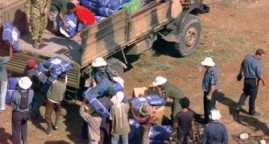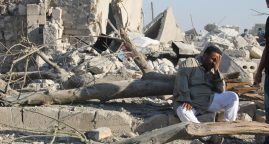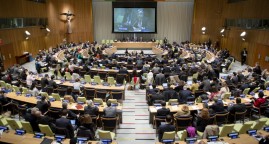Implementing a national strategy for the integration of Roma people in Hungary
Article published on the Sovereign Order of Malta website on 07/04/2019
Order of Malta Hungary: Miklos Vecsei C.G.M., vice-President of the Hungarian Charity Service of the Order (MMSZ), was recently appointed State Commissioner charged with coordinating the drafting and implementation of a diagnosis-based national strategy for the integration of Roma people, responsible directly to the Prime Minister.
His appointment reflects the excellent reputation of MMSZ, and of its successful approach and methodology for the development of the poorest communities and their integration into the mainstream. This approach and methodology are recognized by the European Union as a best practice and have been disseminated through EU-funded regional projects; now the Hungarian Government plans to implement it in 300 sites nationwide, under the direction of Mr. Vecsei. It involves the permanent presence of MMSZ staff on site, the development of activities tailored to the particular wishes and needs of the community, and simultaneous action on a number of priority fronts, typically involving primary schooling, early childhood development, health interventions, income-generating activities, infrastructural improvement and ombudsman support.
In a series of interviews, Miklos Vecsei stressed the principle of diagnosis-based programming. “There are very serious social wounds in a given target community, one cannot set about healing them on the basis of current national project tenders. We are like doctors: we must go to the patient, we must examine him, establish a diagnosis and prescribe the appropriate individual treatment. No doctor would prescribe a medication on the basis that it happens to be on special offer just now.”
He emphasised the importance of keeping the surrounding community informed and involving them in the effort. “It is an illusion to think that the Hungarian Charity Service of the Order of Malta can treat these wounds alone. The surrounding society must be the healer, the partner, it must learn to be inclusive.”
A key point of the strategy is to recognize that children born in deep poverty have a right to all the basics that are taken for granted by other strata of society. “Our society must understand that to ensure that a small baby has a warm bed, basic food, and medical care – that is not a gift from “us” to “them”. Every child deserves to feel that he is unique and wonderful.”
Related Articles
Humanitarian Access in situations of armed conflict
02/24/2012. This Handbook on the normative framework on humanitarian access and an accompanying Field Manual are the two resources developed under the project.
Aleppo: ICRC calls to stop violence
04/29/2016. “There is no safe place anymore in Aleppo. Even in hospitals,” Marianne Gasser, head of the ICRC in Syria.
A humanitarian’s guide to choosing the next UN chief
04/18/2016. Of the 9 candidates to become the next UN secretary-general, who will bring the most expertise, creativity and focus to the humanitarian agenda?






